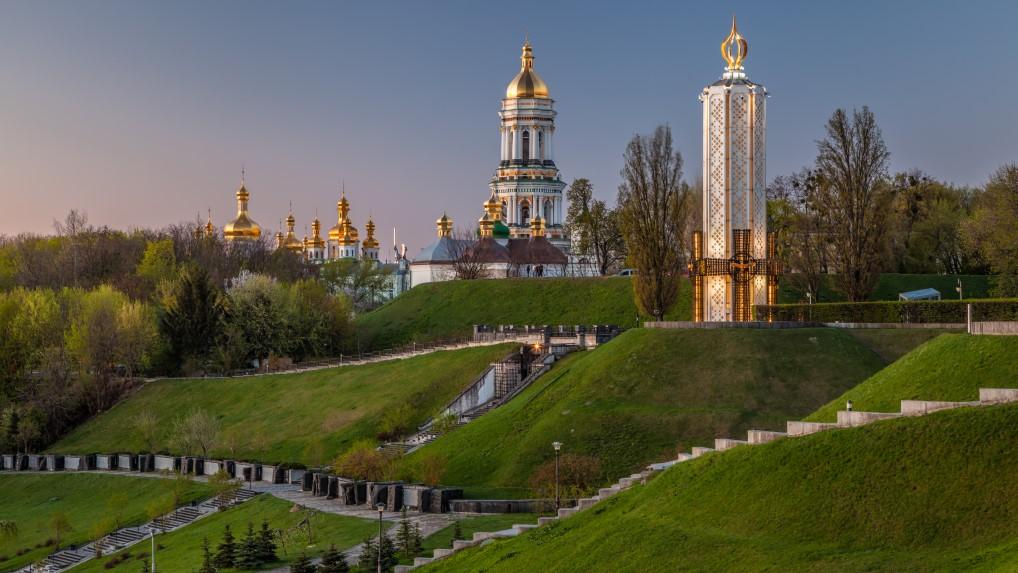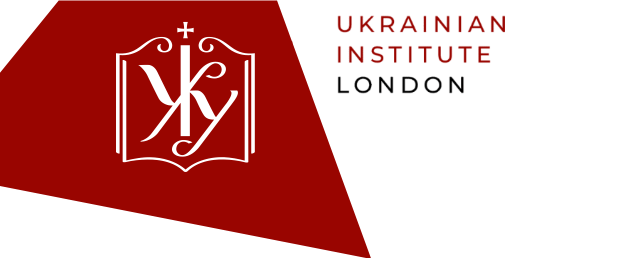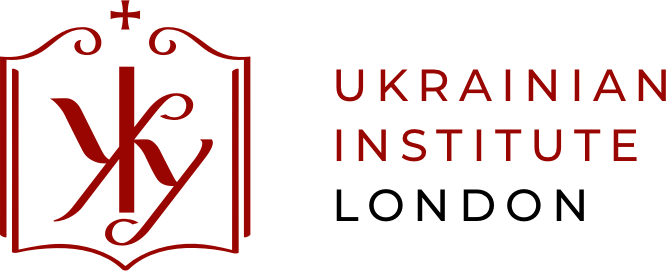Lesia Rudakewych Scholey looks back at her experiences of the early days of Ukraine’s independence and reflects on the country’s future.

AUTHOR
Lesia Rudakewych Scholey, writer and journalist; volunteer with the Ukrainian Institute London.
August 24, 1991. First week at the office, first job of my career. I’ve just graduated from the University of Virginia, B.A. in Foreign Affairs, area of specialisation: Soviet Studies. Only one small problem. Years of analysing Soviet government structures and five-year plans have suddenly become useless. The Soviet Union is falling apart. Of course, in this week, of all weeks, as I’m starting a job promoting democracy over there. Apart from chaos, nothing is clear — coup and counter coup in Moscow at the weekend, and today Ukraine’s parliament votes for a referendum on independence.
Unsurprisingly, I feel joy, excitement and pride. After all, for a member of the Ukrainian diaspora who even as a child marched in protests to free Soviet Ukrainian dissidents, this is a dream come true. But I’m also apprehensive for the massive task at hand – not just for Ukraine and all the other Soviet republics, but me personally. In my new position as a paid intern at the National Endowment for Democracy (NED) in Washington DC, I’ll be trying to help make sense of the mess. What will emerge from the rubble of the collapse of the Soviet Union? How to promote democracy now?
Set up in 1983 as a not-for-profit foundation dedicated to strengthening democratic institutions around the world, in 1991 as I start work NED has already found its niche, issuing grants to NGOs, projects and freedom movements. So, I’ll be at the cutting edge of NED’s activism in Eastern Europe and the Soviet Union, work that includes things like sending fax machines to Rukh and Solidarność and supporting activists fighting the Soviet regime. In Ukraine, people like Serhiy Holovatiy and Viacheslav Chornovil are already fast becoming national heroes, and at the office I’ll sometimes be in the midst of some of the world’s great leaders. NED’s Board of Directors includes Madeleine Albright and Zbigniew Brzezinski.
I’ll be working directly for the esteemed Dr Nadia Diuk, so it’s also nerve wracking that Nadia was reluctant to offer me the post, fearing it might appear nepotistic to select fellow diaspora. So it’s really a stroke of luck that the Soviet Union’s crumbling. With it comes the office-wide realisation that having another Ukrainian language speaker might come in handy.
A few other moments of that incredible year also stand out. Like the time Brzezinski requested my help translating a Ukrainian press write-up of a speech he’d given. I complied, utterly impressed with myself and this brush with greatness, only to receive a typed and hand-signed thank you note with a correction: ‘I think in the context I was being called a hawk, not an eagle’. Right, yiastrub.
There was so much hope and promise at that deciding moment of Ukraine’s rebirth as a nation state
Overall, I recall the early 90s as a very exciting time to be involved in international development. There was so much hope and promise at that deciding moment of Ukraine’s rebirth as a nation state. Within a couple of years, I’d turn to journalism, and as a foreign correspondent be among the first reporters to cover the first post-Soviet parliamentary elections in Ukraine. Living and working in Ukraine until the late 90s, it truly seemed like non-stop chaos and confusion, but also heady freedom for a 20-something where a few dollars in the pocket went a long way. I recall drawling press conferences where President Leonid Kravchuk defaulted to explanations like ‘I can only do what I can do as I cannot do more’ while the press corps scribbled furiously and I wondered if it was just me wondering if that was wisdom, absurdity or just plain tautology. Then came Leonid Kuchma, with renewed focus on eastern Ukraine, all the while government and societal structures and ways of doing things breaking and reforming, no clear way for observers or participants of these moments in history to really understand what was happening at all.
There were also highly memorable moments, like visiting Chornobyl to report on the 10th anniversary of the tragic nuclear accident, and light-hearted and crazy times partying with artists through the night in Kyiv. Rest in peace for that, Kyrill Protsenko, and also Nadia Diuk. Not everyone with whom I’ve shared memories about Ukraine can now reflect on 30 years.
It’s also still difficult now to distil the essence of Ukrainian independence. Time hasn’t provided the kind of clarity one might wish for, more a multiplicity of views
It’s also still difficult now to distil the essence of Ukrainian independence. Time hasn’t provided the kind of clarity one might wish for, more a multiplicity of views. Those involved with Ukraine since 1991 each have their own perspectives and observations, histories and interactions. The past 30 years have included amazing, depressing and terrifying moments, from flag-waving celebrations to battles against corruption, propaganda, violent criminality and inertia. And now, perhaps the fiercest battle yet, against Ukraine’s biggest external enemy in a brutal war.
From jubilation and hope to despair and back again. Perhaps it is because Ukraine now faces Russia in conflict that my attempts to understand Ukrainian independence tend to bring me back to this one geopolitical aspect. When I was still a student and the rumblings of Ukrainian sovereignty were only first making themselves felt, I recall writing a thesis or assignment and arguing this point: that Ukrainian sovereignty and independence would greatly depend not only on what Ukraine chooses for itself, but also on what Russia does. Only if Russia could re-define itself, creating a new identity as a nation-state independent of its tsarist imperial and Soviet colonial past, could Ukraine too be truly free and independent as a country.
Thirty years on, Ukraine is still trying to wrest itself free of Russian dominance, and so its independence remains a work in progress. Putin is hell bent on destroying Ukraine’s autonomy through disinformation campaigns, cyber-attacks, destabilisation of trade and economy, and ultimately the slow bleed of war.
Ukraine has proven it can stand with the West
And yet, Ukraine persists. More than that, it flourishes. Whilst it may not have achieved the full autonomy it has fought for and deserves on the world stage, culturally in Ukraine we see great freedom in the media and arts. Ukraine also continues to move in a positive direction both politically and economically. Every year it becomes more pluralistic and democratic as it attempts reforms to shore up its economy and solidify its credentials as an independent nation. Russia’s onslaught in some ways has only served to show just how different Ukraine is.
Regardless how one rates Ukraine’s previous or current crop of politicians or policies, no matter how one mourns missed opportunities for reform or the problems of corrupt oligarchic practices, Ukraine has proven it can stand with the West and has earned the right to call itself a viable European state. It is a vibrant, exciting and innovative place, and it never ceases to amaze me how the country and its citizens, as well as its diaspora, rise to the challenges of working to consolidate Ukraine’s sovereignty.
If I had one wish for Ukraine, it would certainly be that Russia sorts itself out. On a much lighter note, maybe another crack at Ukraine’s national anthem? ‘Ukraine is not yet dead’ always seems to miss the point. Over the course of its history, Ukraine has fared so much better than simply staying alive. Happy anniversary, Ukraino, and joyous celebrations to all those around the world who wish it well!


